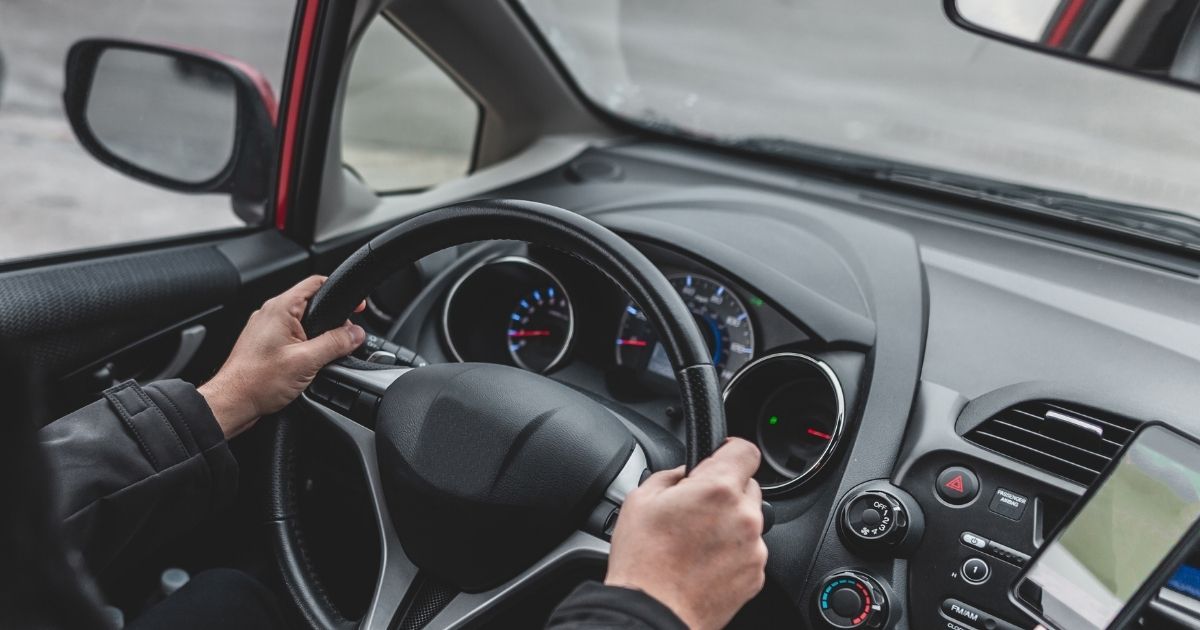It is estimated that about 38,000 people die every year in automobile crashes in the United States, according to CDC. Most car accidents can be prevented because they occur due to driver negligence, such as drunk driving, speeding, using cellphones, etc. By driving defensively, you are taking preventive actions that reduce your risk and the risk of others driving near you.
Defensive driving reduces your chance of getting involved in a car accident. Driving defensively is about anticipating what other drivers may do and reacting accordingly. You should not feel stressed about the potential threats on the road. With defensive driving skills, you will drive cautiously.
All drivers should follow the road rules and drive cautiously, however, some drivers do not follow road rules and state laws. The good news is that drivers can improve their skills, identify common hazards, and take action to avoid getting into a car accident.
You should improve your defensive driving skills and learn techniques that can prevent serious accidents. Many insurance companies offer discounts if drivers take a defensive driving course.
What Can You Learn in a Defensive Driving Course?
Many car accidents across the nation happen because drivers are distracted. Many car accidents that occur every day can be prevented if drivers focus their full attention on the road.
Defensive driving is the practice drivers should take to minimize the dangers of the road. During defensive driving classes, drivers learn techniques to avoid collisions and other incidents. These classes teach drivers how to prioritize safety, which saves lives.
Defensive driving is a skill that needs constant practice and attention to improve road safety. When driving defensively, you use safe driving techniques and strategies to protect yourself and your passengers.
You may be a great driver, but unfortunately, you cannot always control what happens on the road. Extreme weather, aggressive drivers, reckless drivers, mechanical malfunctions, and roadway obstacles can jeopardize the safety of drivers and passengers. Defensive driving courses teach you safe driving techniques that help you gain better control over your vehicle in emergencies. These courses also prepare tactics for dealing with emotional stress, road rage, fatigue, and much more.
Reading about defensive driving basics is not the same as learning how to drive defensively. It is encouraged that all drivers find a defensive driving course near where they live.
Safe driving habits can be attained by driving more pro-actively and maintaining focus at all times, keeping yourself aware, and being able to pre-empt any hazards.
What Can I Do to Become a Defensive Driver?
When it comes to defensive driving, your mood is everything. If you are driving while stressed, angry, tired, upset, etc., these various emotions can affect your ability to safely driving. Defensive driving lessons help drivers develop and maintain a positive and stable perspective while driving, even if they have other feelings. You can learn tricks and ways to overcome the moods you feel when driving.
There are some steps you can take to become a defensive driver.
Improve Reaction and Response Times
When you are driving, it is best to stay alert, avoid distractions, and react immediately to dangers around you. Safe driving techniques should be followed to prevent auto accidents. If you are driving too fast or too close to the car in front of you, then you will likely not have enough time or space to react when you suddenly need to stop.
Furthermore, driving recklessly, while intoxicated, or under the influence, or even with a lack of sleep, puts you and other drivers at risk because you will not be focused enough to react on time when you need to respond fast.
Do Not Drive While Under the Influence
Often, accidents happen because a driver is driving under the influence of drugs or alcohol, which can lead to deadly accidents. Classes that focus on driving under the influence educate individuals on allowable blood alcohol content levels and the repercussions if found driving under the influence of dangerous drugs, alcohol, or other substances.
Enrolling in a defensive driving lesson will make drivers aware of the impact of alcohol or drugs on their behavior, motor skills, and judgment.
Be Aware of Your Surroundings
During defensive driving courses, drivers gain knowledge of preventive measures and how to make sound judgments to decrease car crashes. Drivers learn to be aware of environmental hazards, rights-of-way, sharing the road among other motorists, vehicular emergencies, proper stopping distance, and more.
Defensive driving focuses on your awareness and keeping other drivers aware of your intentions through signaling. Knowing potential hazards and taking preventive measures to avoid them is the key to defensive driving. You should always look in your mirrors, lower the volume of your stereo, and look beyond the car in front of you to help you be aware of hazards before it is too late.
Follow All Traffic Laws
It is crucial to understand your state’s traffic laws. State traffic laws will keep you safe, save money, and decrease your chance of getting into a car accident and getting a traffic violation ticket.
Understand Simple Cues and Reactions
Drivers understand other drivers’ behaviors based on cues. These cues help you determine your course of action before any issues arise. You will react with better focus and judgment and avoid accidents before they happen. You will learn to be aware of your surroundings while paying close attention to driving tactics you can do to prevent a car accident. You will also learn how to respond to situations so you and other drivers are not put in danger.
Follow Safe Driving Tips
Some important safe driving tips you can follow include:
- Keep current on the road rules and laws in your state.
- Do not drive if you feel tired or emotional, angry, upset, etc.
- Maintain a few-second gap when following behind cars.
- Ensure other road users are aware of your intentions by signaling early and often.
- Eliminate all distractions, such as mobile phones, food, and drinks.
- Minimize unnecessary lane changes and turns.
- Ensure plenty of time to make your errands or trip.
- Adapt your driving skills to the road and weather conditions.
You could be entitled to compensation if you have been injured by a negligent driver. If you have been injured in a car accident, it is advisable to have a knowledgeable and experienced lawyer on your side.
Loveland Car Accident Lawyers at the Wolterman Law Office Represent Clients Injured in Auto Accidents
There are many ways you can practice defensive driving. Unfortunately, not all drivers will take proactive steps to drive safely. If you have been injured in a car accident, contact one of our experienced Loveland car accident lawyers at the Wolterman Law Office for legal help. We will guide you and build a robust case. Call us at 513-488-1135 or contact us online to schedule a free consultation. We are located in Loveland, Ohio, and we represent clients in Hamilton County, Fairfield, Norwood, and Forest Park.


